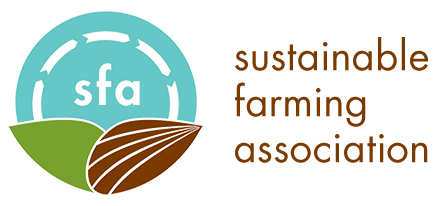Conventional to Kernza®: A Soil Health Journey
 Kaleb Anderson is the third generation of his family farm in Goodhue, Minnesota, and grew up with a conventional ag background. Living in the Driftless region, soil degradation and erosion were always a big concern. Since moving back onto the farm in 2006, Anderson has adjusted practices and diversified the business. He would say that he’s still very much on his ‘soil health journey’ over a decade in: “the more I’ve peeled the onion back, the more I realize how much I need to learn.”
Kaleb Anderson is the third generation of his family farm in Goodhue, Minnesota, and grew up with a conventional ag background. Living in the Driftless region, soil degradation and erosion were always a big concern. Since moving back onto the farm in 2006, Anderson has adjusted practices and diversified the business. He would say that he’s still very much on his ‘soil health journey’ over a decade in: “the more I’ve peeled the onion back, the more I realize how much I need to learn.”
Anderson describes the operation now as “still conventionally based,” and grows corn, Kernza®, and small grains like oats and rye. Grass-finished beef is the centerpiece, and he’s always looking for new crops to grow and ways to stack the cattle with other enterprises. Enter, Kernza®.

Photo courtesy Anderson family.
Perennial-based agriculture had always intrigued Anderson, and when he caught wind of the developing crop Kernza®, he wanted to give it a try. Anderson later connected with Alan Kraus of Clean River Partners, who had also been intrigued by the perennial wheatgrass. Kraus’ own prior dairy grazing experience fueled his interest in measuring the success and profitability of grazing Kernza®.
What followed was an in-depth study on Anderson’s farm. In this episode, Kraus and Anderson go through the findings, and the promise and uncertainties of Kernza® as markets develop. Spoiler: the study found that Kernza® was profitable for forage and grain production, farmer and public interest are growing into well-attended field days, and festivals are coming!
You can listen to this interview on Dirt Rich anywhere you get your podcasts, including Spotify, Apple Podcasts, Stitcher, Podbean, and on the SFA website. Do you have ideas for future episodes? Comments? Drop us a line.
